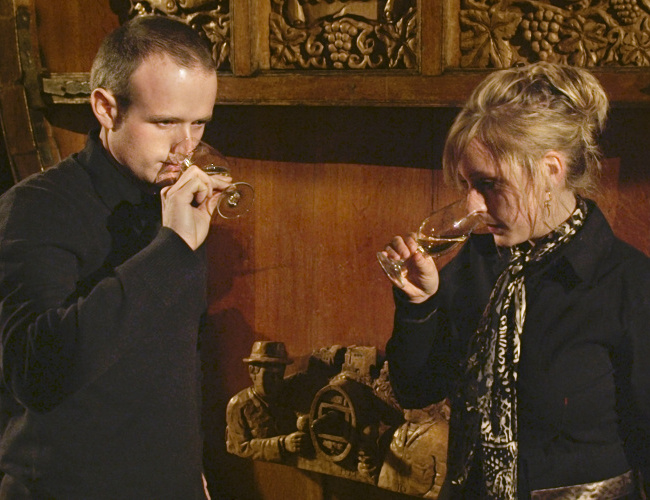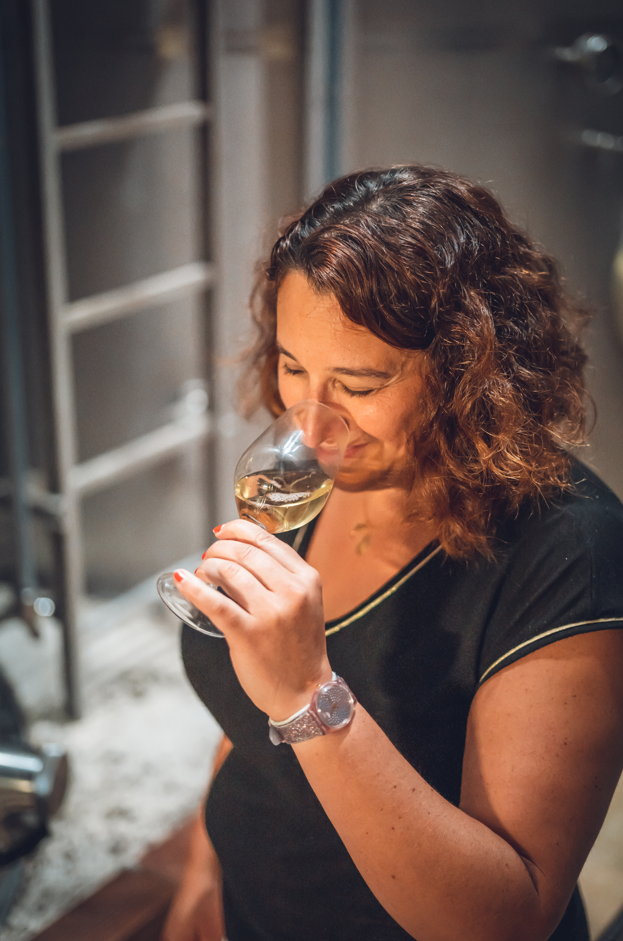
Making Alsace white wine
The production of white wine is clearly the most common in Alsace and is carried out in precise steps.

From harvesting to fermenting
After the harvest, the grapes are put into horizontal pneumatic presses where the juice is slowly extracted. After crushing the grapes, the juice (actually the must, which includes the skins, stems and seeds) is stored in different vats depending on the varietal and the parcel it came from, and then carefully clarified.
Fermenting: the key to vinification
The fermenting stage, which is the natural transformation of sugar into alcohol (thanks to the presence of natural yeasts in the must) now begins in stainless steel vats. This operation can generate high increases in temperature – up to 30°C or 86°F – potentially harming the aromatic quality of the wines. So control systems and temperature regulators, set at around 18°C/ 64°F, are systematically installed in the cellars. After three or four weeks, at the end of the fermentation, the Alsace wines are racked to eliminate most of the lees, or sediment such as the yeast, which have given up all their sugars. They then undergo three to four months of fining. Hoping to preserve the natural freshness of the wines, no malolactic fermentation is done.
Racking and bottling
Before bottling, it is important to filter and stabilize the wines. Filtering aims to eliminate all the floating particles to get a perfectly limpid, bright wine. This is done by crossflow filtration.
Final stabilization is done by membrane filtration during bottling.
It’s done quite rapidly compared to other regions, beginning in February and March for wines meant to be served young. The finest wines, those to be set aside for aging, are bottled just before the following harvest. Alsace wines generally undergo aging in the bottle.
The red and rosé wines
There are two other types of vinification practiced in Alsace: red and rosé.
The vinification process for red wine differs from the white by the fact that the grapes are not pressed immediately upon arrival at the cellar. A maceration stage, during which the skins are in contact with the juice, precedes the fermentation in order to extract the maximum color and tannins.
The vinification of rosé is only a variation on that, with a shorter maceration time.





